Research
Infographic
Recognizing Faculty with Disabilities: Data and Considerations from the Faculty Job Satisfaction Survey
Drawing upon Faculty Job Satisfaction Survey data from 2019 and 2020, this piece examines meaningful differences in perception of the academic workplace between faculty with visible disabilities, invisible disabilities, and no reported disabilities.
Case Study
Supporting the Next Generation of Faculty at Georgia State University
In this partner spotlight, Georgia State University shares how the institution applied its data-driven approach to student success to the faculty experience through the administration and rollout of the Faculty Job Satisfaction Survey.
Webinar
Success After Tenure: Lessons in Engaging Mid-Career Faculty
Based on the 2018 book, Success After Tenure: Supporting Mid-Career Faculty (Stylus), this webinar highlights the impetus behind compiling the volume, as well as the successful practices put in place by COACHE partners at Rochester Institute of Technology.
Browse Resources By Topic
- Career Path
- Faculty Development & Support
- Diversity, Equity, & Inclusion
- Higher Education Leadership
- Recruitment & Retention
- Work Life Balance
Gender and Race Differences in Faculty Assessment of Tenure Clarity: The Influence of Departmental Relationships and Practices
Citation:
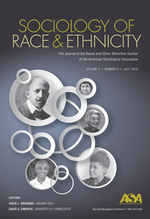
Abstract:
The authors look at how the intersection of gender and race influences pre-tenure faculty members’ perceptions of the clarity of tenure expectations. The authors also seek to identify potential predictors (assessment of mentoring, relationships with peers, feedback on progress toward tenure, and fairness in tenure decision making and evaluation) of perceptions of tenure clarity for four intersectionally defined groups, including historically underrepresented minority women (URMW). The authors use an intersectional perspective and the gendered and racialized organizations’ theoretical lens to interpret the results. The data set comes from the Faculty Job Satisfaction Survey. Findings show that compared with white men, URMW are less satisfied with their relationships with peers and with the fairness in the evaluation of their work. They are also less likely to agree that mentoring is effective, that tenure decisions are fair, and that messages about tenure are consistent.Benchmark Best Practices: Tenure and Promotion
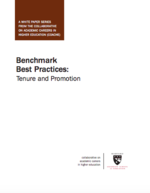
Abstract:
The COACHE surveys of college faculty produce data that are both salient to full-time college faculty and actionable by academic leaders. The survey items are aggregated into 20 benchmarks representing the general thrust of faculty satisfaction along key themes. This white paper discusses the themes of tenure policies, tenure clarity, and promotion.
Administrators and faculty alike acknowledge that, at most institutions, the bar to achieve tenure has risen over time. While it is impossible to eliminate anxiety from the minds of all pre-tenure faculty members, or the pressures exerted on their lives en route to tenure, academic leaders can improve the clarity of tenure policies and expectations without sacrificing rigor. And while the academy has recently improved many policies for assistant professors (e.g., research leave; stop-the-tenure-clock; part-time tenure-track options), it has done far less for associate professors. Ideas have emerged from COACHE research on tenured faculty.
Perspectives on Midcareer Faculty and Advice for Supporting Them
Citation:
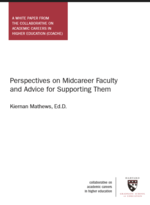
Abstract:
This 8-page white paper was produced for an invited presentation at the Association of Public Land-grant Universities' (APLU) Council on Academic Affairs Summer Meeting in Santa Fe, New Mexico. The paper examines the experiences of midcareer faculty, who face an increased teaching load, greater expectations for service and advising, a more competitive market for grants, and the disappearance of mentoring programs that supported them as early-career faculty. The toll of these obligations is heavier on women and faculty of color. Institutions can address the challenges midcareer faculty face by designing orientations that cover the entire career, implementing career re-visioning programs, providing opportunities for re-engagement, and mentoring associate professors.Faculty Leadership and Institutional Resilience: Indicators, Promising Practices, and Key Questions
Citation:
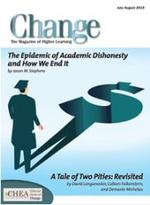
Abstract:
There is renewed interest in shared governance in American higher education. This evidence-based, exploratory study of faculty leadership identifies promising practices for shared stewardship and provides follow-up questions for senior leaders to assess the state of faculty leadership and shared governance on their own campuses. The findings are based on interviews with chief academic officers or faculty officers and chief elected faculty leaders at baccalaureate, masters, and research institutions identified as exemplars through the Faculty Job Satisfaction Survey. The author argues for an expansive view of faculty leadership as a key component of institutional resilience.
The Academic Environment and Faculty Well-Being: The Role of Psychological Needs
Citation:
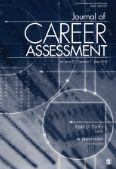
Abstract:
In response to recent research on the well-being of higher education faculty, which has lacked a theoretical model, this study used self-determination theory to model the well-being of 581 tenured and tenure-eligible faculty members at a large midwestern university. The study looked at the relationships between environmental factors (e.g., administrative support, research support, promotion and tenure support) and faculty well-being (i.e., teaching/service satisfaction and global satisfaction), hypothesizing that volitional autonomy, perceived competence, and perceived relatedness would partially mediate these relationships. Results of path analysis indicated that all relations between the environment and teaching/service satisfaction were fully mediated by volitional autonomy and perceived competence, whereas all relations between the environment and global satisfaction were partially mediated by perceived relatedness. These findings highlight that psychological needs are central in understanding the relations between the environment and faculty well-being. The study discusses additional implications and future directions for research.
Success After Tenure: Lessons in Engaging Midcareer Faculty
Citation:
Abstract:
Mid-career faculty actively seek professional satisfaction and personal well-being in their careers at the departmental and institutional level. However, a growing body of research tells us that the policies and practices in place at colleges and universities do not always support this goal. This webinar, “Success After Tenure: Lessons in Engaging Mid-Career Faculty,” offers an inside take on the themes of the book Success After Tenure: Supporting Mid-Career Faculty and provide real-world best practices from practitioners in the field.
Full Text
Watch the Recording
Download the presentation slides
Administrative Hierarchy and Faculty Work: Examining Faculty Satisfaction with Academic Leadership
Citation:
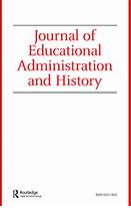
Abstract:
Academic administrators at all levels have some impact on the performance of faculty members, yet each level of administration may interact differently with faculty. Literature has strongly supported the notion that department chairs, deans, and provosts can positively influence the performance and livelihood of faculty members. This study was designed to explore faculty satisfaction with each level of academic administration making use of the 2014 Faculty Job Satisfaction Survey data collected by the Collaborative on Academic Careers in Higher Education. Faculty members at research universities were more satisfied with leadership at the departmental than college or institutional levels. Furthermore, assistant professors were significantly more satisfied with academic leadership at all levels than both associate and full professors.Effective Academic Governance: Five Ingredients for CAOs and Faculty
Citation:
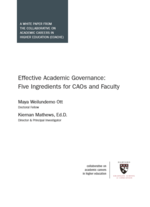
Abstract:
The COACHE research-practice partnership is designed to enact organizational change for the benefit of faculty and, by extension, the institution. But does every college's system of shared governance have what it takes to meet their own or, indeed, higher education’s most pressing challenges? This white paper looks beyond the rhetoric toward a more differentiated understanding of the ingredients of effective academic governance. Ott and Mathews offer a five-factor framework grounded in the literature, developed from interviews, and, now, tested in a survey of thousands of faculty. The report concludes with advice for assessing and fostering the qualities of “hard” and “soft” governance practices essential to sustainable change in the “real world” decision-making of committees, assemblies, senates, councils, and unions.Benchmark Best Practices: Departmental Leadership
Citation:
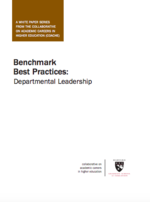
Abstract:
The COACHE surveys of college faculty produce data that are both salient to full-time college faculty and actionable by academic leaders. The survey items are aggregated into 20 benchmarks representing faculty satisfaction. This white paper examines departmental leadership and faculty satisfaction with chairs’ or department heads’ pace of decision-making, stated priorities, and fairness in evaluating faculty work.
COACHE’s 2010 pilot study of tenured faculty found that faculty desire from the administration a clearly articulated institutional mission and vision that do not change in ways that adversely affect faculty work. Faculty also wish for clear expectations for the mix of research, teaching, and service or outreach; support for research and teaching; and a sense that their work is valued. Deans and department chairs can improve faculty morale through communication, and particularly by involving faculty in meaningful decisions that affect them. Deans and chairs are also responsible for supporting faculty in adapting to any changes to mission and institutional priorities.
Revealing Data on Faculty Retention & Departure
Citation:
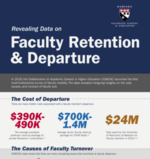
Abstract:
In 2017, after a successful pilot with several campuses of a large public university system, COACHE launched the Faculty Retention and Exit Survey nationwide. This study represents the first multi-institutional survey of faculty retentions (among those with outside offers) and departures. Until now, there was no coordinated effort for universities to develop a common understanding of the causes, costs, and conduct of faculty mobility.
Among the takeaways: More than half of faculty ranked salary as a secondary factor or not a factor in their decision to stay or leave. But 67% selected quality of colleagues as a compelling factor. The study also found that faculty are expected to cultivate outside offers before they can ask for a better deal at home, and that this requirement pushes them out the door: nearly 1 in 3 faculty who left originally sought the offer only to renegotiate the terms of their employment.
Full Text

College nursing faculty job satisfaction and retention: A national perspective
Citation:
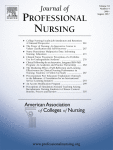
Abstract:
The need for registered nurses in the United States continues to grow. To meet this need for increased numbers of nurses, recruitment and retention of qualified nurse educators has become a priority, and job satisfaction and nursing faculties’ intent to stay have emerged as important considerations for administrators.
The purpose of this study is to analyze variables of relationships with nurse faculty job satisfaction and intent to stay from data collected throughout the United States. The Faculty Job Satisfaction Survey was employed for the purposes of this study. Over 1,350 nurse educators were included in the survey. The findings support a variety of modifiable variables that are viewed as important by nursing faculty. The strongest relationship was found to be institutional leadership. The implications can inform academic administrators seeking to retain nursing faculty.
Academic nursing administrators' workplace satisfaction and intent to stay
Citation:
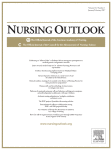
Abstract:
Family policies and institutional satisfaction: An intersectional analysis of tenure-track faculty
Citation:
Thesis Type:
DissertationAbstract:
Guided by an intersectional perspective, this study compares responses to the 2008 and 2009 Tenure-Track Faculty Job Satisfaction survey provided by four groups of faculty: African American women, African American men as well as white women and white men. The study examines faculty perceptions regarding the importance of family policies as related to career success, the effectiveness of family policies at the institution, and the level of satisfaction with work-life balance. The findings indicate that there are significant differences in policy perceptions and work-life satisfaction. African American women overwhelmingly indicate that eldercare policy is important to career success, while white women are more concerned with childcare policy. Significant group differences emerge in faculty assessment of childcare policy. The analysis reveals institutional-level support for care work influences overall satisfaction with the institution more than departmental support. The findings suggest care work still matters in relation to a faculty member's career advancement.
Work life balance and job satisfaction among faculty at Iowa State University
Citation:
Thesis Type:
DissertationAbstract:
This study utilized the existing database from the Iowa State University 2009-2010 Faculty Job Satisfaction Survey to explore faculty work life balance and job satisfaction among academic disciplines. This research sought to determine if (a) work life differs by academic discipline group: (b) job satisfaction differs by academic discipline, and (c) there is a relationship between faculty work life and job satisfaction and whether this relationship differs by academic discipline group, and (d) if academic discipline has a unique effect on faculty work and life balance.
The results indicated that there is a significant relationship between work life and job satisfaction. When controlling for demographic and professional experience, the result also indicated that age and climate, and culture were significant predicators for work life balance. The results also showed that female faculty have lower job satisfaction, and indicated that the level of job satisfaction was lower for hard pure disciplines than soft pure disciplines.
Success on the Tenure Track: Five Keys to Faculty Job Satisfaction
Citation:
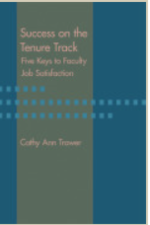
Abstract:
Landing a tenure-track position is no easy task. Achieving tenure is even more difficult. Under what policies and practices do faculty find greater clarity about tenure and experience higher levels of job satisfaction? What makes an institution a great place to work?
In 2005–2006, the Collaborative on Academic Careers in Higher Education surveyed more than 15,000 tenure-track faculty at 200 institutions. The survey was designed around five key themes: tenure clarity, work-life balance, support for research, collegiality, and leadership.
Success on the Tenure Track positions the survey data in the context of actual colleges and universities. Best practices at the highest-rated institutions in the survey—Auburn, Ohio State, North Carolina State, Illinois at Urbana-Champaign, Iowa, Kansas, and North Carolina at Pembroke—give administrators practical, proven advice on increasing employee satisfaction. Additional chapters discuss faculty demographics, trends in employment practices, creating a great workplace for faculty, and the future of tenure.
Gender and Race Differences in Faculty Assessment of Tenure Clarity: The Influence of Departmental Relationships and Practices
Citation:

Abstract:
The authors look at how the intersection of gender and race influences pre-tenure faculty members’ perceptions of the clarity of tenure expectations. The authors also seek to identify potential predictors (assessment of mentoring, relationships with peers, feedback on progress toward tenure, and fairness in tenure decision making and evaluation) of perceptions of tenure clarity for four intersectionally defined groups, including historically underrepresented minority women (URMW). The authors use an intersectional perspective and the gendered and racialized organizations’ theoretical lens to interpret the results. The data set comes from the Faculty Job Satisfaction Survey. Findings show that compared with white men, URMW are less satisfied with their relationships with peers and with the fairness in the evaluation of their work. They are also less likely to agree that mentoring is effective, that tenure decisions are fair, and that messages about tenure are consistent.International Faculty Perceptions of Departmental Climate and Workplace Satisfaction
Citation:
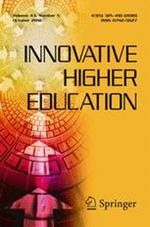
Abstract:
Although the variability in the definitions and immigration status of international academics makes it challenging to provide the exact number of foreign-born faculty members teaching and conducting research in U.S. postsecondary institutions, all data accounts have pointed to a steady growth in this segment of the professoriate. This study used data from the 2011-2014 Faculty Job Satisfaction Survey to examine international faculty members’ satisfaction with autonomy, interactions with colleagues, departmental climate, and recognition and the effect of these elements upon the overall workplace satisfaction of international faculty members relative to their U.S. citizen peers.
This study helps identify factors that can enhance international faculty members’ satisfaction in order to aid institutions in their efforts not only to recruit the best talent but also to support and retain such talent.
Climate Change: Creating Space for Interdepartmental Problem Solving at Skidmore College
Citation:
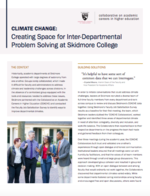
Abstract:
Historically, academic departments at Skidmore College operated with large degrees of autonomy from one another. Groups rarely collaborated, which made it difficult for faculty and administrators to address climate and leadership challenges across divisions. In the absence of a centralized group equipped with the tools and resources needed to address these issues, Skidmore partnered with the Collaborative on Academic Careers in Higher Education (COACHE) and conducted the Faculty Job Satisfaction Survey to identify ways to improve departmental climates.
Using Skidmore’s survey results as a baseline for their first meeting, the team, which Skidmore leaders dubbed the ‘COACHE Collaborators’, worked together to identify three areas of departmental climate in need of attention: collegiality, diversity and inclusion, and work-life balance.
Browse Resources by Faculty Type
Family policies and institutional satisfaction: An intersectional analysis of tenure-track faculty
Citation:
Thesis Type:
DissertationAbstract:
Guided by an intersectional perspective, this study compares responses to the 2008 and 2009 Tenure-Track Faculty Job Satisfaction survey provided by four groups of faculty: African American women, African American men as well as white women and white men. The study examines faculty perceptions regarding the importance of family policies as related to career success, the effectiveness of family policies at the institution, and the level of satisfaction with work-life balance. The findings indicate that there are significant differences in policy perceptions and work-life satisfaction. African American women overwhelmingly indicate that eldercare policy is important to career success, while white women are more concerned with childcare policy. Significant group differences emerge in faculty assessment of childcare policy. The analysis reveals institutional-level support for care work influences overall satisfaction with the institution more than departmental support. The findings suggest care work still matters in relation to a faculty member's career advancement.
Intent to leave the professoriate: The relationship between race/ethnicity and job satisfaction for pre-tenured professors in doctorate-granting universities
Citation:
Thesis Type:
DissertationAbstract:
This study investigated pre-tenure faculty satisfaction and intent to leave their institution using 2005–2008 data from the Faculty Job Satisfaction Survey. The purpose of this study is to identify salient variables influencing faculty of color retention and to explain the lack of progress in diversifying the professoriate by exploring the relationship between racial/ethnic group membership and pre-tenure faculty job satisfaction and the relationship these variables have with departure intentions. The study was limited to faculty working at doctorate-granting U.S. universities.
Results of the study suggest faculty of color are more likely to intend to leave their institutions than their White (non-Hispanic) counterparts. Specifically, the study's findings suggest satisfaction with tenure processes and procedures, teaching, advising, service, and research expectations, and collegiality negatively influenced departure intentions of pre-tenure faculty overall and for specific racial/ethnic groups. The study offers ideas for expanded research on pre-tenure faculty job satisfaction and intent to leave.
Career Stage Differences in Pre-Tenure Track Faculty Perceptions of Professional and Personal Relationships with Colleagues
Citation:
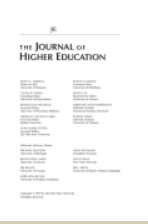
Abstract:
Despite a steady decline in available faculty tenure-track positions, future vacancies in tenure-track positions provide opportunities to diversify faculty ranks with new female faculty and faculty of color. This impending employment shift in faculty demographics may change departmental climates, pre-tenure faculty socialization processes, and professional and personal relationships between pre-tenure female faculty and faculty of color and their colleagues.
This study examines pre-tenure faculty members' perception of collegial relationships with colleagues. We primarily focus on the organizational socialization of female faculty and faculty of color, and faculty in different pre-tenure career stages. We found differences in satisfaction with collegial relationships between faculty by gender, race, and pre-tenure career stages.
The Situational Context of Tenured Female Faculty in the Academy and the Impact of Critical Mass of Tenured Female Faculty on Pre-tenure Faculty Job Satisfaction: A Four Discipline Study
Citation:
Thesis Type:
DissertationAbstract:
This research studies the convergence between critical mass, discipline and gender in the academy. Critical mass theory is based on the concept that when a "nonmajority" group reaches a minimal threshold they can generate lasting change within an organization. While women receive doctoral degrees in higher percentages than their male colleagues, they do not ascend the ranks in the same proportions (Touchton, McTighe Musil, & Peltier Campbell, 2008). A critical mass of tenured female faculty has the ability to positively impact the environment for pre-tenure faculty at the departmental level.
The study used data from the 2011-12 COACHE survey of faculty in finance/accounting, management, English and history. A critical mass of tenured female faculty positively impacted environments for pre-tenure females and males in history and females in management. In management departments without a critical mass of tenured female faculty, females were significantly less satisfied while their male colleagues were significantly more satisfied. Further qualitative research is needed to better understand environments using the lenses of critical mass, discipline and gender.
The role of citizenship status in intent to leave for pre-tenure faculty
Citation:
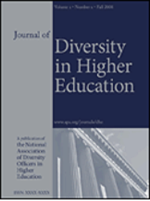
Abstract:
Using a national database, this study uses discriminant analysis to explore the role of citizenship status in determining intent to leave for pre-tenure faculty members at 4-year research universities. Of the three possible responses (intend to stay, intend to leave, and undecided), two functions emerged. The first function differentiates those who intend to stay from those who intend to leave and those who are undecided. The second function differentiates between those who intend to leave and those who are undecided.
Measures of satisfaction with workplace serve as the primary indicators of function one. Race and citizenship status are the only variables significant for function two. Demographic variables, discipline, salary, and institutional variables are not significant in either function. The variables that are significant for the entire sample are similar to those significant just for non-U.S. citizen faculty. Implications of this study for institutions include attending to departmental and institutional fit, recognition of diversity among non-U.S. citizen faculty, and working toward improving various components of satisfaction.
Success on the Tenure Track: Five Keys to Faculty Job Satisfaction
Citation:

Abstract:
Landing a tenure-track position is no easy task. Achieving tenure is even more difficult. Under what policies and practices do faculty find greater clarity about tenure and experience higher levels of job satisfaction? What makes an institution a great place to work?
In 2005–2006, the Collaborative on Academic Careers in Higher Education surveyed more than 15,000 tenure-track faculty at 200 institutions. The survey was designed around five key themes: tenure clarity, work-life balance, support for research, collegiality, and leadership.
Success on the Tenure Track positions the survey data in the context of actual colleges and universities. Best practices at the highest-rated institutions in the survey—Auburn, Ohio State, North Carolina State, Illinois at Urbana-Champaign, Iowa, Kansas, and North Carolina at Pembroke—give administrators practical, proven advice on increasing employee satisfaction. Additional chapters discuss faculty demographics, trends in employment practices, creating a great workplace for faculty, and the future of tenure.
Perspectives on Midcareer Faculty and Advice for Supporting Them
Citation:

Abstract:
This 8-page white paper was produced for an invited presentation at the Association of Public Land-grant Universities' (APLU) Council on Academic Affairs Summer Meeting in Santa Fe, New Mexico. The paper examines the experiences of midcareer faculty, who face an increased teaching load, greater expectations for service and advising, a more competitive market for grants, and the disappearance of mentoring programs that supported them as early-career faculty. The toll of these obligations is heavier on women and faculty of color. Institutions can address the challenges midcareer faculty face by designing orientations that cover the entire career, implementing career re-visioning programs, providing opportunities for re-engagement, and mentoring associate professors.The workplace satisfaction of newly-tenured faculty members at research universities
Citation:
Thesis Type:
DissertationAbstract:
If faculty are dissatisfied with their work, colleges and universities can experience educational and organizational repercussions that include contentious departmental climates and stagnant work productivity. The dissatisfaction of newly tenured faculty, who face unique transitional circumstances, could have particularly negative consequences.
This dissertation uses Faculty Job Satisfaction Survey data, along with interviews of 12 newly tenured faculty members, to estimate the predictors of newly tenured faculty workplace satisfaction. The results indicate that newly-tenured faculty tend to be satisfied with their institutions when they have communicative senior leaders, fair and reasonable compensation, and a sense of belonging in their departments. At the departmental level, newly-tenured faculty are more likely to be satisfied when norms and behaviors promote inclusion and diversity, colleagues are respectful, and departmental leaders are supportive. The results of this study can stimulate thinking about new policies and practices to maximize the satisfaction and performance of faculty during this transformative period in their careers.
Data, Leadership, and Catalyzing Culture Change
Citation:
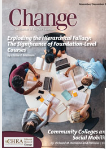
Abstract:
As the national economy has worsened, a large cadre of tenured senior faculty is graying and staying at their institutions. This has left an older set of full professors who began their careers in a different era, an overworked and underappreciated set of associate professors, and a group of assistant professors who are wondering, “What have I gotten myself into?”
By and large, tenure-track faculty want what they have always wanted: clear and reasonable tenure requirements; support for teaching and research; an environment that allows them to juggle responsibilities at work and home; and a set of colleagues to whom they can turn for mentoring, collaborations, intellectual stimulation, and friendship. But several differences between the past and present affect these faculty dramatically.
Gender Differences in Faculty Member Job Satisfaction: Equity Forestalled?
Citation:

Abstract:
Guided by Hagedorn’s (2000) theory of faculty job satisfaction, mindful of social and organizational structures of higher education, and acknowledging recent changes in the academic labor market, this study examines satisfaction for approximately 30,000 tenured and tenure-track faculty members in 100 US colleges and universities. Findings revealed similarity between female and male faculty members in some aspects of work satisfaction, but difference in other areas in which women reported lower satisfaction. Findings also revealed that perceptions of department fit, recognition, work role balance, and mentoring are more important to women faculty’s satisfaction than male peers. These findings have implications for policy and practice.
Reasonableness and clarity of tenure expectations: Gender and race differences in faculty perceptions.
Citation:
Abstract:
This dissertation studies how higher education policies and practices can affect faculty retention and proposes changes that higher education institutions need to make to retain their faculty. The first manuscript investigates the reasonableness of tenure expectations as it relates to work-life balance, the second explores whether women’s and men’s assessments of tenure-related departmental practices influence their perceptions of clarity of tenure expectations, and the third looks at how the intersection of gender and race influences faculty perceptions of clarity of tenure expectations. The dissertation uses Faculty Job Satisfaction Survey data from a sample of 2,438 tenure-track assistant professors at research universities.
The Situational Context of Tenured Female Faculty in the Academy and the Impact of Critical Mass of Tenured Female Faculty on Pre-tenure Faculty Job Satisfaction: A Four Discipline Study
Citation:
Thesis Type:
DissertationAbstract:
This research studies the convergence between critical mass, discipline and gender in the academy. Critical mass theory is based on the concept that when a "nonmajority" group reaches a minimal threshold they can generate lasting change within an organization. While women receive doctoral degrees in higher percentages than their male colleagues, they do not ascend the ranks in the same proportions (Touchton, McTighe Musil, & Peltier Campbell, 2008). A critical mass of tenured female faculty has the ability to positively impact the environment for pre-tenure faculty at the departmental level.
The study used data from the 2011-12 COACHE survey of faculty in finance/accounting, management, English and history. A critical mass of tenured female faculty positively impacted environments for pre-tenure females and males in history and females in management. In management departments without a critical mass of tenured female faculty, females were significantly less satisfied while their male colleagues were significantly more satisfied. Further qualitative research is needed to better understand environments using the lenses of critical mass, discipline and gender.
Browse Resources by Type
Non-Tenure Track Faculty Satisfaction: A Self-Determination Model
Citation:
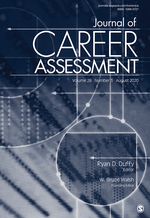
Abstract:
Full-time non-tenure track faculty, commonly referred to as NTT faculty, shoulder much of the teaching load within academic institutions. Self-determination theory (SDT) has shown promise as a conceptual frame for characterizing the relationship between environmental support factors and NTT faculty satisfaction. Full-time NTT faculty were sampled nationwide to investigate an SDT-based model positing basic psychological needs (i.e., volitional autonomy and relatedness) as mediators between six environmental support indices and NTT faculty satisfaction. Structural equation model results showed volitional autonomy and relatedness fully mediated the relationships between the six environmental supports and both indices of faculty satisfaction.Work–Family Balance and Tenure Reasonableness: Gender Differences in Faculty Assessment
Citation:
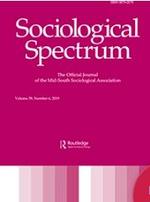
Abstract:
Perceptions of work–family balance and of the reasonableness of tenure expectations are key faculty retention factors. Using the Faculty Job Satisfaction Survey, which includes data from 2,438 tenure-track assistant professors, Rodica Lisnic, Anna Zajicek, and Brinck Kerr explore whether faculty assessment of departmental and institutional support for family influences their perceptions of the reasonableness of tenure expectations.
Results reveal that women are less likely than men to report tenure expectations as scholars are reasonable and that departments and institutions are supportive of family-work balance. Departmental support for family-work balance, caring for an ill family member, satisfaction with family-friendly policies, and workload have the strongest association with reasonableness. Satisfaction with family-friendly policies has a significant relationship with reasonableness of tenure expectations only for faculty with family care responsibilities. These results have implications for family-friendly policies and practices in academia.
Personal and Institutional Predictors of Work-Life Balance among Women and Men Faculty of Color
Citation:
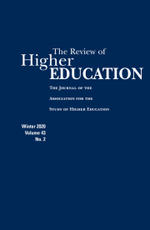
Abstract:
This study examines predictors of perceived work-life balance among women and men faculty of color using data from the Collaborative on Academic Careers in Higher Education (COACHE). Asian American men faculty report higher perceived work-life balance, while African American women faculty report lower perceived work-life balance as compared to other faculty members. Findings from multivariate analyses show that the strongest, most consistent positive predictor of perceived work-life balance was the faculty perception that the institution does what it can to make personal/family obligations and an academic career compatible. The findings offer important implications for institutional and departmental climate and policy.Highlights Report 2008: Selected Results from the COACHE Tenure-Track Faculty Job Satisfaction Survey
Citation:
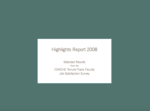
Abstract:
The Collaborative on Academic Careers in Higher Education provides academic leaders with peer data to monitor and improve work satisfaction among full-time, tenure-track faculty. More than 130 four-year colleges and universities have joined COACHE to enhance the quality of life for pre-tenure faculty and to enhance their ability to recruit, retain, and develop those faculty. The core element of COACHE is the Tenure-Track Faculty Job Satisfaction Survey. We now have job satisfaction data on over 8,000 pre-tenure faculty.
The COACHE Survey assesses faculty experiences in several areas: clarity and reasonableness of tenure processes and review; workload and support for teaching and research; importance and effectiveness of policies and practices; and climate, culture and collegiality on campus.
This COACHE Highlights Report complements the Institutional Report with an overview of results across all COACHE sites in the 2005-06, 2006-07, and 2007-08 cohorts. This year’s Report provides results disaggregated by race/ethnicity; by university control; and by gender.
COACHE Benchmark Exemplars, 2005-07
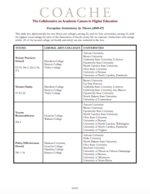
Abstract:
While the majority of junior faculty at America’s colleges and universities are satisfied at work, some institutions are doing particularly well in this regard. The Tenure-Track Faculty Job Satisfaction Survey, administered by the Collaborative on Academic Careers in Higher Education (COACHE) in 2005 and 2006, determined that some colleges and universities are “exemplary” on certain key dimensions of faculty work/life. The COACHE Survey considered the following categories in its assessment: tenure practices, clarity, and reasonableness; effectiveness of key policies (e.g., mentoring, childcare, and leaves); nature of work: teaching, research and support services; work and family balance; satisfaction with compensation; climate, culture, and collegiality; and global satisfaction.
“We are again recognizing those colleges and universities that are succeeding in their efforts to improve the quality of work/life for their junior faculty,” said Dr. Cathy Trower, COACHE Director. “By earning and maintaining the distinction of being a great place for new scholars to work, these exemplary institutions will be most able to attract and retain top academic talent in an increasingly competitive faculty labor market.”
- «
- 3 of 3
Benchmark Best Practices: Mentoring
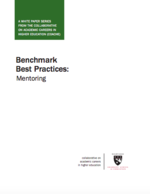
Abstract:
The COACHE surveys of college faculty produce data that are both salient to full-time college faculty and actionable by academic leaders. The survey items are aggregated into 20 benchmarks representing faculty satisfaction. This white paper examines the effectiveness of mentoring within departments, outside departments but at the same institution, and outside the institution.
Mentoring has always been important in the academic workplace. Only in recent years, however, has the practice evolved more widely from incidental to intentional as academic leaders have come to appreciate that mentorship is too valuable to be left to chance.
Many pre-tenure faculty members feel mentoring is essential to their success, but such support is also instrumental for associate professors on their path to promotion. While some institutions rely on the mentor-protégé approach (a senior faculty member formally paired with a junior faculty member), new models encourage mutual mentoring, team mentoring, and strategic collaborations beyond the department.
Benchmark Best Practices: Interdisciplinary Work & Collaboration
Citation:
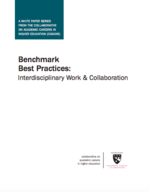
Abstract:
The COACHE surveys of college faculty produce data that are both salient to full-time college faculty and actionable by academic leaders. The survey items are aggregated into 20 benchmarks representing faculty satisfaction. This white paper examines collaboration—within departments, outside of departments but at the same institution, and outside the institution—and attitudes toward interdisciplinary work.
While interest in interdisciplinary work has increased, and this type of work attracts many graduate students and early-career faculty, the academy has not yet fully embraced interdisciplinary work. Unchanged policies, structures and cultures are institutional disincentives, as they are still best-suited to narrower work within disciplines. This includes publication vehicles, multiple authors, peer review, and reward structures.
Benchmark Best Practices: Department Engagement, Quality, and Collegiality
Citation:
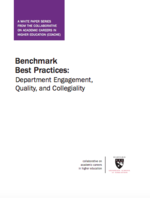
Abstract:
The COACHE surveys of college faculty produce data that are both salient to full-time college faculty and actionable by academic leaders. The survey items are aggregated into 20 benchmarks representing faculty satisfaction. This white paper discusses departmental engagement, quality, and collegiality.
Departmental quality is a function of the intellectual vitality of faculty, the scholarship that is produced, the effectiveness of teaching, how well the department recruits and retains excellent faculty, and whether and how poor faculty performance is handled. While many factors comprise faculty members’ sense of departmental collegiality, COACHE has discovered that faculty are especially cognizant of their “fit” among their colleagues, their personal interactions with colleagues, whether their colleagues “pitch in” when needed, and colleague support for work/life balance. There is no substitute for a collegial department when it comes to faculty satisfaction, and campus leaders—both faculty and administrators—can create opportunities for better informal engagement.

